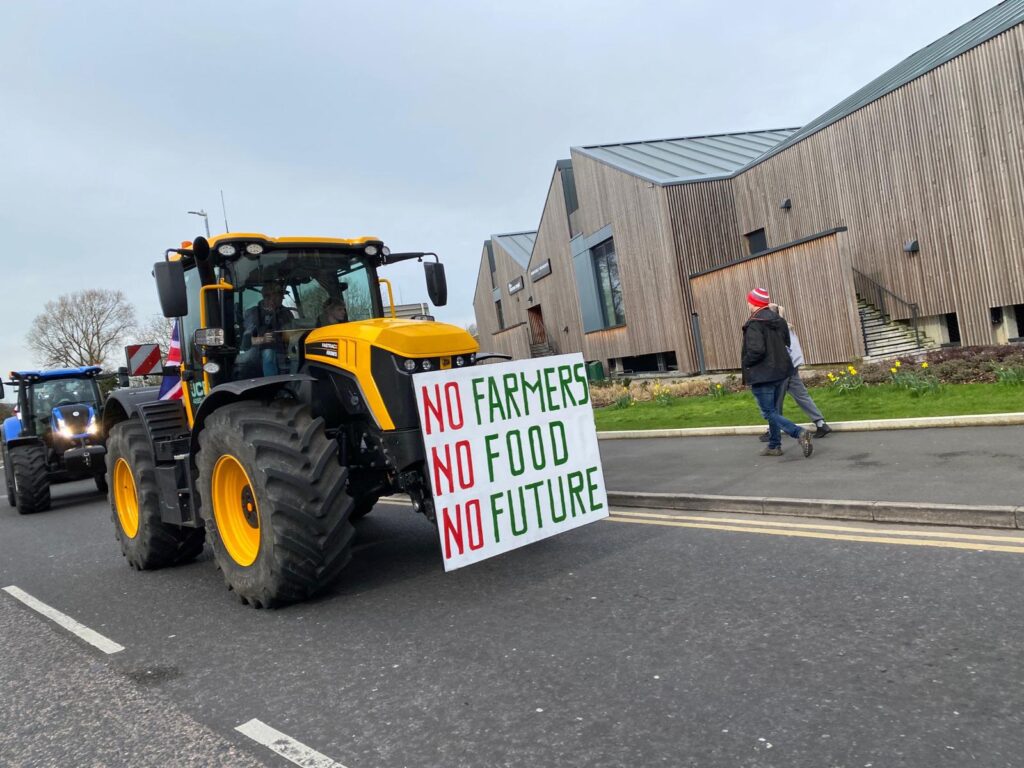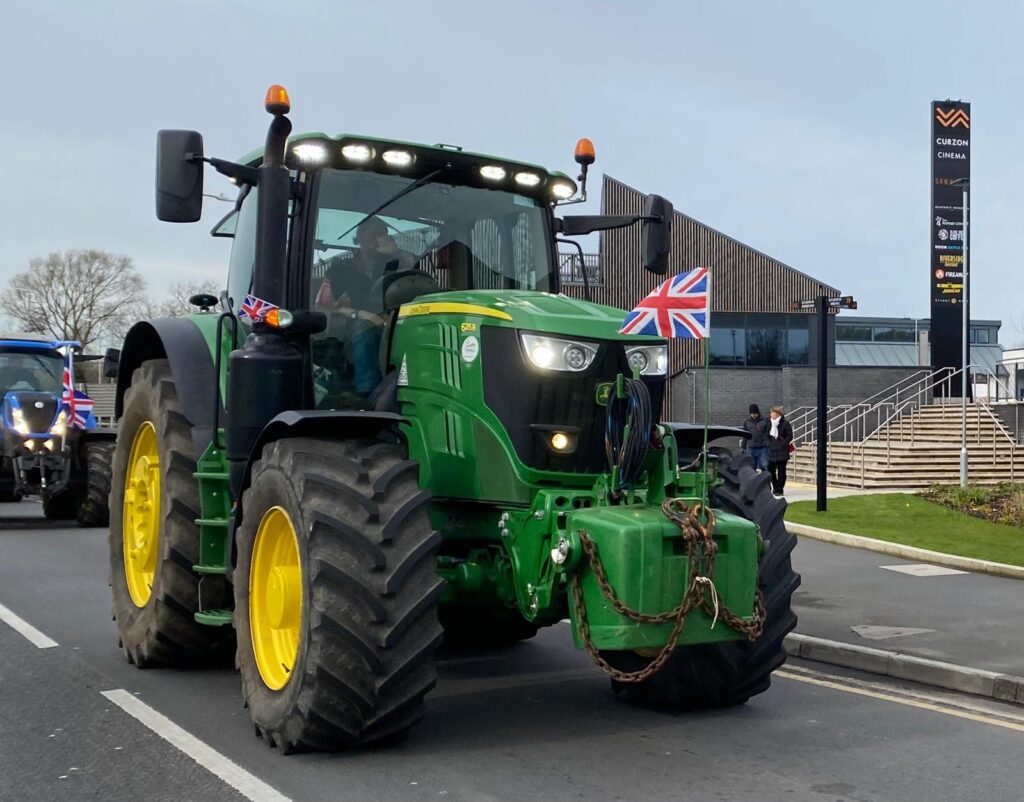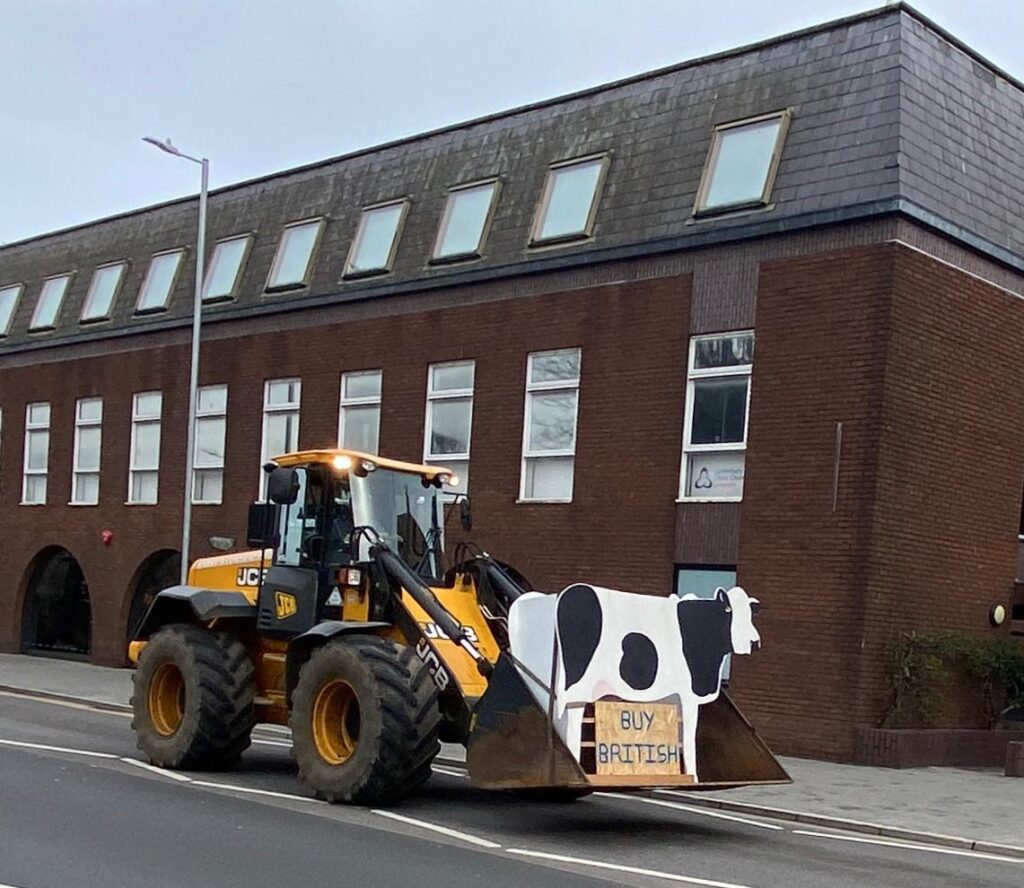We came across the Farmers protest in Canterbury, Kent today. Karara Foods uses top local ingredients so our local farmers are close in our thoughts and we support them.
The farming protests in Canterbury, Kent, England and across the world have gained considerable attention worldwide. While they originate from different countries and contexts, both share common themes. Demands for agricultural reform and concerns over the livelihoods of farmers. In this blog, we will explore the similarities and differences among their protests.
Farmers have come to cities across UK from the quiet country fields in protests. Demanding relief from crisis driven by climate change, government policies, red tape and have been for quite a few years. Additionally, environmental sustainability and animal welfare have been central issues. Farmers calling for greater support and recognition of their role in producing food sustainably. In Canterbury today Farmers drove in their tractors on the busy streets to help people recognise a change is needed and change must not be ignored.
The Canterbury protests have highlighted to the locals the challenges faced by small-scale farmers in the region, who are struggling to compete with larger agricultural corporations. The lack of government support and the pressure to meet strict regulatory standards have further exacerbated the difficulties faced by farmers in Canterbury, Kent, UK.
The UK isn’t the only place where farmers are needing a break and some support.
In India, the farming protests have been ongoing since 2020. Primarily in response to three controversial agricultural laws passed by the government. Farmers in India are concerned that these laws will undermine their bargaining power. Leading to the corporatisation of agriculture and imported produce being prioritised. The protests by massive demonstrations, sit-ins, and road blockades with farmers demanding a guarantee of minimum support price (MSP) for crop yield and loan waivers.
The Indian farming protests have brought attention to the deep-rooted issues in the country’s agricultural sector. This includes lack of fair pricing, inadequate government support, and vulnerability of small-scale farmers to market fluctuations. Farmers in India are calling for reforms that prioritise their well-being and ensure the sustainability of agriculture in the country.
Currently road blocks are in place to try to stop the demonstrations however it is not easing the underlying issues.
The scale and intensity of the Indian farming protests have been much larger compared to the protests in Canterbury,Kent however the issues are very similar. Both the British and Indian farming protests highlight the challenges faced by farmers in a rapidly changing agricultural, economic and political landscape.
The protests among other countries underscore the importance of addressing issues such as fair pricing, government support, and environmental sustainability in agriculture.
Farmers across the world are advocating for reforms that prioritise their livelihoods and ensure the long-term viability of farming.
While the farming protests in Canterbury and India have distinct origins and contexts, they both highlight the pressing need for agricultural reform. The protection of farmers’ interests and welfare. By understanding the similarities and differences between these movements, we can gain insights into the complexities of the agricultural sector and the challenges faced by farmers globally.
Enough is enough




